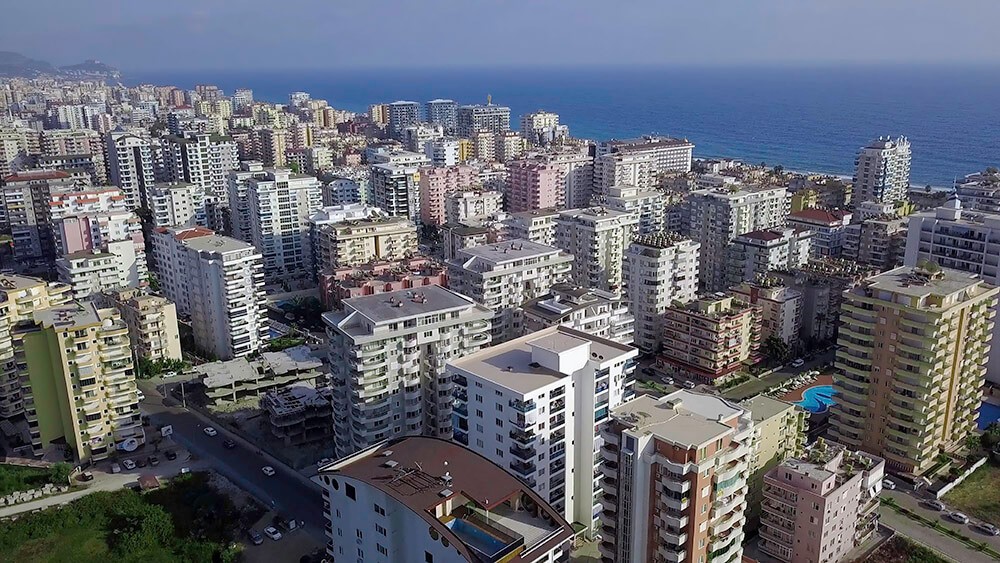Everything you need to know about the cadastral value of real estate in Turkey


The cadastral value of real estate is one of the most important terms for all home buyers in Turkey. It serves as the basis for calculating taxes, state fees, and other official charges. Understanding the mechanisms behind the cadastral value and its impact on various aspects of purchasing and owning Turkish property is essential for making informed investment decisions.
What is the cadastral value of real estate in Turkey, how is it calculated, and where is it used? This article explains all the details.

Cadastral and sale value of an object - basic concepts
The cadastral value of a property, known in Turkish law as “rayic bedel”, is the official value of real estate recorded in government documents, in particular the TAPU (title deed).
Market value, or selling price, is the actual price at which a home sells on the open market. This figure is determined by supply and demand, taking into account current market conditions, the area's infrastructure, transportation accessibility, and many other factors that buyers are willing to pay.
Historically, there was a significant gap between the market valuation of apartments in Turkey and the value stated in the TAPU documents. The latter could account for approximately 50% of the actual market price, especially in large cities and dynamically developing areas. This discrepancy was explained by several factors. First, appraisal commissions periodically revised the value, while the market had already experienced significant growth. Second, the appraisal methodology was rather conservative and did not take into account all market realities.
This difference was exploited quite legally by Turkish citizens and foreign investors. When registering the purchase and sale transaction with the Land Registry Office, the seller and buyer indicated a lower amount on the deed, even though the property was actually sold at a higher price. This allowed both parties to reduce their tax burden, as the registration fee and capital gains tax for the seller are calculated based on the amount declared on the Tapu.
How is cadastral value determined?
The cadastral value calculation mechanism in Turkey is based on the work of special appraisal commissions. A major revaluation is required to take place every four years, in accordance with Property Tax Law No. 1319. This ensures a certain stability in the tax base, while also allowing for annual adjustments to the valuation based on changing market conditions.
An appraisal commission, officially called the Takdir Komisyonu, is established in each municipality to establish a base value for land and real estate. The commission's work begins with a detailed analysis of the municipal territory. The city is divided into appraisal zones. When determining land prices, many factors are taken into account, such as:
- prestige and demand for the area;
- transport accessibility and proximity to the metro or main highways;
- development of commercial and social infrastructure;
- the presence of parks, schools, shopping centers and medical facilities;
- environmental situation;
- views from the windows;
- development prospects, including planned infrastructure projects.
In turn, the cadastral value of the plots becomes the basis for calculating the cadastral value of specific properties. For this purpose, the ministry-approved construction price lists per square meter are used, depending on the type of structure and quality of materials.
Furthermore, factors affecting the final cadastral value of an apartment or house include the building's age and deterioration, as well as certain amenities and features. For example, the presence of central heating, air conditioning, concierge service, underground parking, a swimming pool, a fitness center, and other common amenities in a residential complex are taken into account during the valuation.

Innovations of 2026
Starting in 2026, the authorities will launch a major reform of the real estate valuation system in Turkey. Valuation commissions working this year approved new land price targets for a four-year period ending in 2029, increasing them by 10-15 times compared to the existing parameters.
The reasons for such a radical revision of valuations lie in the gap between official cadastral values and actual market prices that has accumulated over many years. The Turkish housing market experienced rapid growth between 2021 and 2024. At the same time, inflation, the devaluation of the Turkish lira, an influx of foreign investors, and domestic demand led to apartment prices, especially in large cities, increasing severalfold.
This discrepancy resulted in annual budget losses of approximately $6 billion in transaction fees, or nearly $25 billion when all taxes are taken into account. Underestimated estimates also created problems in the earthquake insurance system: maximum insured amounts proved insufficient to fully compensate for damages.
In 2025, authorities granted property owners the right to challenge the established valuation. Owners who believed that the cadastral value recorded for their street or property significantly exceeded the actual market value and was inconsistent with the prices of similar properties in neighboring areas could provide evidence and request a court to adjust the data.
However, in most cases, challenging the estimate proves a complex process, as the new data is significantly closer to market reality than the old, understated figures.
Why is cadastral value needed?
Cadastral value serves several key functions in the Turkish property management and taxation system:
- Formation of the tax base. This value is used to calculate the annual property tax, which all property owners are required to pay. For residential properties located within large municipalities, the tax rate is 0.2% of the cadastral value.
- The basis for calculating state fees when registering purchase and sale transactions. When an apartment is sold and ownership transfers from the seller to the buyer, a fee of 4% of the cadastral value is charged. This amount is paid by the buyer.
- Obtaining a residence permit and citizenship in Turkey by investment. For buyers planning to obtain a residence permit, it is important to ensure that the price of the property being purchased, as per the TAPU documents, actually exceeds the required threshold of USD 200,000. Given the sharp increase in cadastral values in 2026, many properties that were previously ineligible for residence permits will now be eligible.
The minimum investment threshold for obtaining Turkish citizenship through real estate is USD 400,000. The cadastral value is used as the basis, but it's important to understand that when applying for a second passport, an official appraisal report prepared by SPK-licensed companies is used.
- Determining insurance premiums under compulsory earthquake insurance. In Turkey, all residential buildings must be insured under the DASK system. The insured amount and the amount of damage compensation depend on various factors, including the building's structural features, year of construction, and seismic zone. The official cadastral value serves as the starting point for determining the appropriate level of insurance coverage.
- Calculating Inheritance and Gift Taxes. When real estate is inherited or gifted, tax authorities calculate the tax based on the property's official value, as stated in the title deed. The higher the value, the higher the tax amount owed by the heirs or recipient.
- Calculating compensation in renovation programs. When a municipality or developer initiates a renovation project for an old housing stock, owners are offered compensation in the form of new apartments or cash payments. The amount of this compensation is largely determined by the official value of the housing to be demolished.

How to find out the cadastral value
For potential buyers, knowing the current cadastral value of a property in Turkey is crucial information that influences financial planning and decision-making. There are several ways to obtain this information.
For the most accurate and detailed information, please contact the Cadastral Chamber directly where your property is located. Cadastral offices exist in every province and major city districts.
You can obtain an official extract from the Turkish Cadastre containing all the information about a property, including its exact characteristics, area, building class, year of construction, and price. You will need to provide a full set of documents for the purchase and sale transaction.
A potential buyer also has the option of requesting information about the current cadastral value of a property in Turkey from the seller or real estate agency. This information is included in the TAPU document, which is in the owner's possession.
Altop Real Estate offers deep expertise and extensive experience in all matters relating to the Turkish housing market. Our specialists are ready to provide professional consultations, help you select apartments that meet your goals and budget, organize all necessary appraisals and inspections, and ensure the legal execution of the purchase and sale transaction. We will guide you through every step, from the initial application to obtaining title deeds and, if necessary, a residence permit or Turkish citizenship for the purchase of real estate.
When you work with Altop Real Estate, you can be assured of a professional approach, protection of your interests, and the successful implementation of your investment plans!



